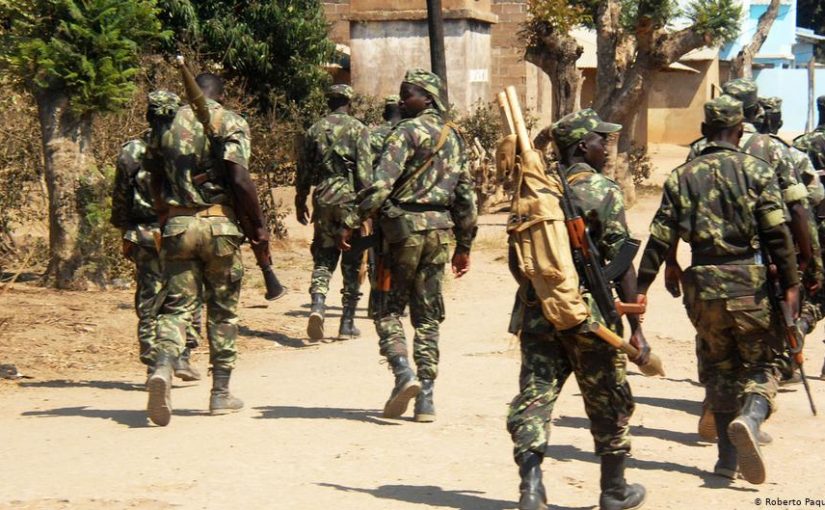Mozambique: Portuguese businessman murdered in Maputo - AIM report | Watch
Mozambique: ‘Urgent‘ international military operation needed in Cabo Delgado – analyst

File photo: DW
Analyst Bulama Bukarti argued on Wednesday that northern Mozambique needs an “urgent” international intervention by military forces from neighbouring countries or a major US-backed offensive to defeat the armed terrorist groups.
“There is a need for a military intervention to contain the violence. We also have to address the underlying causes, which are the socio-economic circumstances on the ground. But it is obvious that the Mozambican government is having difficulties controlling the situation,” the expert on sub-Saharan African issues from the Tony Blair Institute for Global Change (TBI) told Lusa today.
Bukarti is an expert on Islamic extremism in Africa, particularly the history of the Boko Haram group, the ‘jihadist’ organisation established in northeastern Nigeria that has spread to Chad, Niger and northern Cameroon.
At the time, the analyst with the Institute for Global Transformation, founded by the former British prime minister, was already calling for a military counter-offensive because of the risk of a worsening situation in the Cabo Delgado region in the north of the country.
The recent armed attacks on the village of Palma, about six kilometres from major natural gas exploration projects, are, in his opinion, a “moment of truth”.
“It is the first attack where Western citizens were clearly targeted by the location of the attack and how it was launched. It was a three-pronged attack, which shows the sophistication and growing threat of the group. And it is also the first major attack on natural gas companies,” he told Lusa.
Regional military intervention, Bukarti said, should involve South Africa and other neighbouring states because of the risk of the violence spreading to countries like Malawi, and recalled Chad’s initial neutrality towards Boko Haram, which eventually attacked that country as well.
“We know that it is almost impossible for the group to launch attacks against South Africa from that part of Mozambique, but it is not unlikely that they will mobilise supporters in South Africa,” he stressed.
The potential military involvement of the United States was made easier after they classified the armed groups operating in Mozambique, known locally as Ansar al-Sunna or Al-Shebab, as organisations with links to the Islamic State (ISIS).
Bukarti admits the need for an offensive similar to the one made against ISIS that led to the fall of the caliphate in Iraq and northern Syria, which mobilised local forces with the support of international air bombing and logistics.
“Insurgencies are never defeated in a day. The example of Iraq and Syria shows that if there is a massive and sustained offensive, it is possible to decimate them in three to six months. What would be left would be about 10 percent, which could be tackled gradually,” he told Lusa.
Bukarti does not believe that the military training offered by Portugal and other partners is sufficient and fears that delaying an intervention could benefit terrorists to increase capacity by recruiting more people and launching new attacks.
“If we look at this attack, they attacked banks to steal money and warehouses to steal food to try to increase capacity. What we may see next is another attack, bigger than this attack [in Palma] and continued territorial expansion,” he warned.
Mozambican President Filipe Nyusi said today that his government is assessing with international partners the needs for help in the fight against “terrorism”, noting that the fight against armed groups should be done by Mozambicans.
The Islamic State terrorist movement last week claimed control of the town of Palma, near the border with Tanzania, but the Mozambican Defence and Security Forces (FDS) completely retook control of the town, the spokesman for the Northern Operational Theatre, Chongo Vidigal, announced on Sunday.
Several countries have offered Maputo military support on the ground to combat these insurgents, but so far there has been no opening, although there are reports and testimonies pointing to the existence of security companies and mercenaries in the area.
The attacks have caused dozens of deaths and forced thousands of Palma residents to flee, worsening a humanitarian crisis that has affected some 700,000 people in the province since the conflict began, according to United Nations figures.













Leave a Reply
Be the First to Comment!
You must be logged in to post a comment.
You must be logged in to post a comment.